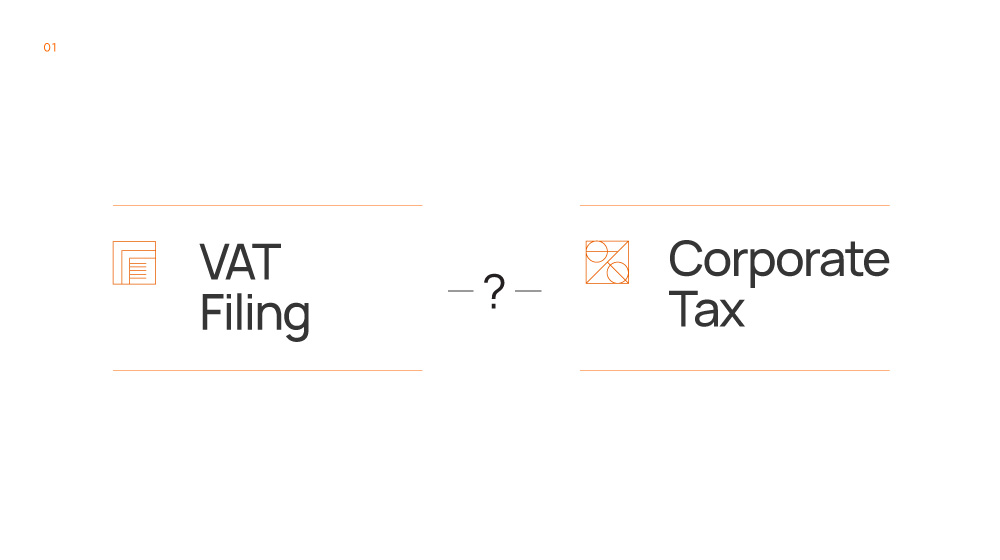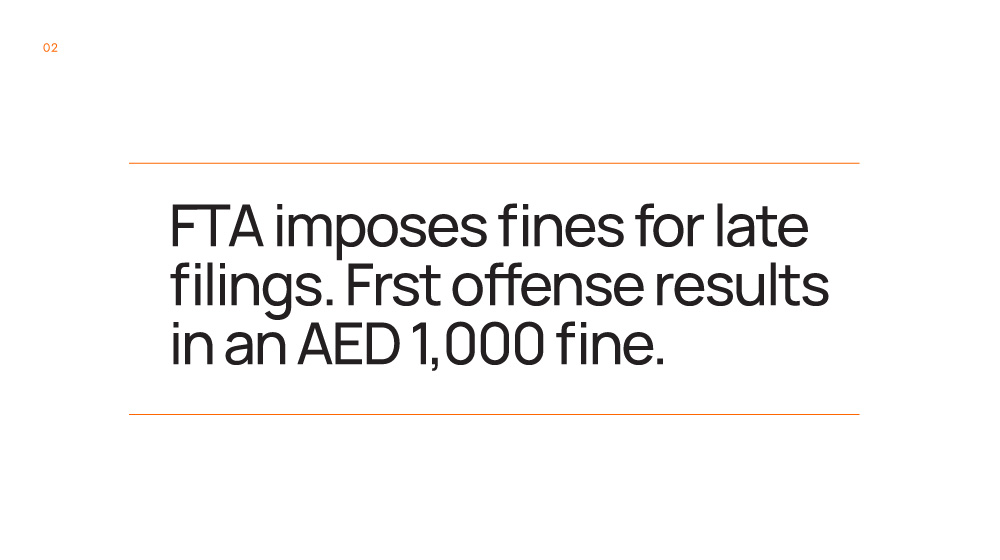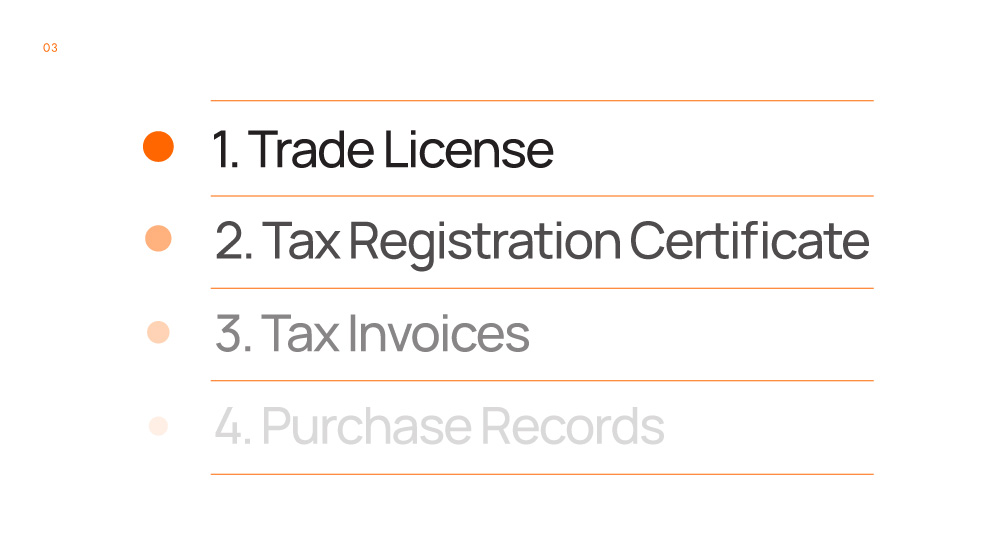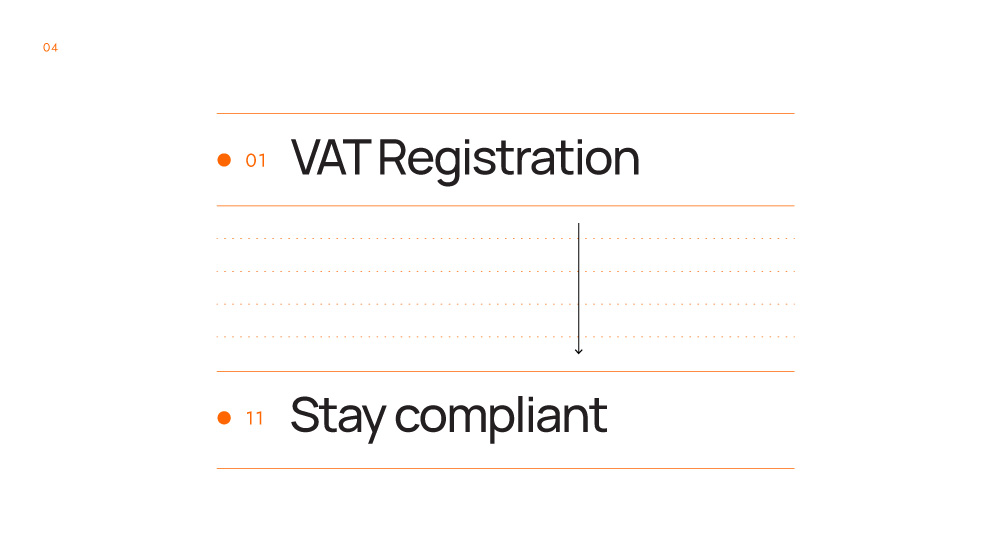VAT Filing in UAE: Aligning with Corporate Tax for Compliance
VAT (Value Added Tax) in the UAE is a 5% tax imposed on goods and services, which businesses are required to file with the Federal Tax Authority (FTA) on either a monthly or quarterly basis. Failure to submit VAT returns on time can result in penalties, starting at AED 1,000 for a first offense, with increasing fines for subsequent violations. Additionally, any unpaid tax will incur further penalties.
With the recent introduction of corporate tax, it is now essential for businesses to align their VAT filing with corporate tax compliance. Discrepancies between VAT returns and corporate tax filings can lead to audits and legal complications, which could have serious financial and reputational consequences.
In this guide, we will walk you through the specifics of VAT filing in UAE, its connection to corporate tax, and the critical importance of maintaining compliance to protect your business from potential penalties and legal consequences.
Table of Contents
The Link Between VAT Filing and Corporate Tax Compliance in the UAE

In the United Arab Emirates (UAE), Value Added Tax (VAT) and Corporate Tax are interconnected parts of the tax system. Understanding how VAT filing in UAE relates to Corporate Tax is key to staying compliant and avoiding penalties.
VAT Filing Obligations
VAT, introduced in 2018 at a rate of 5%, is levied on most goods and services in the UAE. Businesses exceeding annual taxable supplies of AED 375,000 are mandated to register for VAT with the Federal Tax Authority (FTA). Once registered, businesses must file VAT returns detailing the VAT collected on sales (output tax) and the VAT paid on purchases (input tax). VAT filing in UAE is typically done quarterly or monthly, depending on the business’s turnover, with a standard deadline of 28 days after the end of each tax period.
Corporate Tax Compliance
In 2023, the UAE introduced a federal corporate tax at a standard rate of 9% on business profits exceeding AED 375,000, with certain exemptions and incentives available. Alongside VAT filing in UAE, businesses must file annual corporate tax returns, reporting their taxable income and calculating the tax due. The filing deadlines vary based on the business’s financial year-end. For example, businesses with a fiscal year ending on March 31, 2025, must file their corporate tax returns by December 31, 2025.
Interconnection Between VAT Filing in UAE and Corporate Tax
While VAT and corporate tax are separate, they are interconnected in several ways:
- Financial Reporting Alignment: Accurate financial records are essential for both VAT filing in UAE and corporate tax filings. Any discrepancies between these can trigger audits and potential penalties.
- Cash Flow Management: Timely payment of VAT and corporate tax liabilities is crucial. Businesses must manage their cash flow to meet these obligations, as delays can result in fines and interest charges.
- Compliance Deadlines: Missing deadlines for VAT filing in UAE or corporate tax filings can result in penalties. Businesses must stay on top of all relevant filing dates to remain compliant.
By understanding and managing the relationship between VAT filing and corporate tax compliance, businesses can minimize risk, avoid penalties, and maintain smooth operations within the UAE’s tax framework.
The Importance of VAT Filing in UAE

1. Avoid Penalties and Fines
Failing to file VAT returns on time is not only a breach of legal obligations but also a financial risk. The Federal Tax Authority (FTA) imposes hefty fines for late filings, with the first offense resulting in an AED 1,000 fine. However, repeat offenses lead to higher penalties, which can accumulate rapidly. Moreover, unpaid VAT amounts incur additional interest charges, which can compound the financial burden. These penalties can quickly spiral out of control, impacting the business’s profitability and cash flow. Businesses handling VAT filing in UAE must stay organized and proactive to avoid these extra costs and potential legal complications. Timely filing ensures you avoid these extra costs and potential legal complications.
2. Ensure Accurate Financial Reporting
Regular VAT filing in UAE forces businesses to maintain precise records of all transactions. This practice not only ensures VAT compliance but also improves the overall accuracy of your financial reporting. Accurate financial statements are essential for internal management, especially when it comes to forecasting, budgeting, and strategic decision-making. Additionally, detailed records are crucial in case of an audit by the FTA, as they provide transparent documentation of your business’s activities, demonstrating that the business is adhering to VAT regulations.
3. Maintain Business Reputation
In today’s business environment, a company’s reputation is a valuable asset. Organizations that consistently comply with tax regulations, including VAT obligations, are viewed as responsible and trustworthy by clients, suppliers, investors, and regulatory bodies. Conversely, non-compliance can damage a company’s reputation, suggesting poor governance and a lack of accountability. Maintaining a track record of timely VAT filings signals a business’s commitment to ethical standards and legal obligations, enhancing its credibility and fostering long-term business relationships.
4. Facilitate Cash Flow Management
Timely VAT payments are integral to effective cash flow management. Delayed VAT filings and subsequent payments can lead to the accrual of penalties and interest, which may place undue strain on a company’s financial resources. By adhering to VAT filing deadlines, businesses can better manage their cash flow and avoid unexpected financial pressures. Proper VAT filing in UAE not only ensures compliance but also helps businesses maintain financial stability, allowing them to focus on growth and development rather than dealing with the repercussions of financial mismanagement.
5. Alignment with Corporate Tax Obligations
The introduction of corporate tax in 2023 has added an additional layer of complexity to tax compliance for businesses in the UAE. To avoid discrepancies that could trigger FTA audits, it’s important to properly register for corporate tax and align your corporate tax returns with VAT filing in UAE. These audits can lead to legal risks, financial penalties, and potential reputational damage. Staying compliant with both VAT and corporate tax requirements helps businesses minimize risks and maintain a strong standing with stakeholders.
Required Documents for VAT Filing in UAE

Ensuring timely and accurate VAT filings is essential for businesses operating within the United Arab Emirates (UAE). To facilitate this process, the Federal Tax Authority (FTA) mandates the submission of specific documents.
As of 2025, the following documents are required for VAT filing in UAE:
1. Trade License:
This document serves as the legal authorization for a business to operate within the UAE. A valid trade license is essential for VAT registration and subsequent filings.
2. Tax Registration Certificate:
Issued by the FTA, this certificate confirms a business’s VAT registration status. It is necessary for filing VAT returns and acts as the official identification in the VAT system.
3. Tax Invoices:
Detailed records of all sales transactions, including tax invoices, are crucial. These documents support the reported output VAT and are essential for accurate VAT filing in UAE.
4. Purchase Records:
Documentation of all business-related purchases, including receipts and invoices, supports input VAT claims. Maintaining organized purchase records ensures that businesses can substantiate their input tax credits.
5. Bank Statements:
Bank statements provide a financial overview of the business’s transactions, assisting in reconciling reported VAT amounts with actual financial activities.
6. Import and Export Documentation:
For businesses involved in international trade, records such as customs declarations and shipping documents are vital. These documents confirm the correct VAT treatment of cross-border transactions, ensuring compliance with UAE tax regulations and supporting accurate VAT filing in UAE.
7. Financial Statements:
Comprehensive financial statements, including profit and loss accounts and balance sheets, offer insights into the business’s financial health. They are instrumental in preparing accurate VAT returns and ensuring overall tax compliance.
It is imperative for businesses to maintain organized and accurate records of these documents. Proper documentation not only facilitates seamless VAT filing in UAE but also safeguards against potential audits and penalties.
Comprehensive Guide to VAT Filing in the UAE

1. VAT Registration
Before filing VAT returns, businesses must register with the FTA. VAT Registration in UAE is mandatory for entities with an annual taxable turnover exceeding AED 375,000. Once registered, the FTA issues a Tax Registration Number (TRN), which is essential for all VAT-related transactions and filings. Proper registration is the first step toward compliant VAT filing in UAE and avoiding potential penalties.
2. Determine Your VAT Filing Frequency
VAT filing frequency in the UAE is primarily based on annual taxable turnover:
- Quarterly Filing: Businesses with an annual turnover below AED 150 million are required to file VAT returns quarterly.
- Monthly Filing: Businesses with an annual turnover of AED 150 million or more must file VAT returns monthly.
3. Understand VAT Filing Deadlines
VAT returns must be filed within 28 days after the end of the tax period. For example, for a quarterly filer, the VAT return for the period ending March 31 is due by April 28. Timely VAT filing in UAE is crucial to avoid penalties.
4. Prepare Necessary Documentation
Before initiating the filing process, gather all required documents, including:
- Tax Registration Number (TRN): Issued upon VAT registration.
- Sales and Purchase Invoices: Detailed records of all transactions.
- Import and Export Documents: Relevant customs and shipping records.
- Bank Statements: To reconcile financial transactions.
Having these documents ready ensures a smooth VAT filing in UAE and helps avoid errors or delays.
5. Access the FTA e-Services Portal
Log in to the FTA’s e-Services portal using your credentials. If you don’t have an account, you’ll need to register.
6. Complete the VAT201 Form
The VAT201 form is divided into several sections:
Taxpayer Details: Enter your business name, TRN, and contact information.
VAT Return Period: Specify the tax period for which you’re filing.
VAT on Sales and Other Outputs: Report total sales and VAT collected.
VAT on Expenses and Other Inputs: Report total purchases and VAT paid.
Net VAT Due: Calculate the difference between output and input VAT.
Additional Reporting Requirements: Provide details on exempt and zero-rated supplies.
Declaration and Authorized Signatory: Confirm the accuracy of the return.
Accurately completing this form is essential for a smooth VAT filing in UAE process and ensuring compliance with tax regulations.
7. Submit the VAT Return
After completing the VAT201 form:
- Review: Ensure all information is accurate and complete.
- Submit: Finalize the return electronically through the portal.
- Acknowledgment: Upon submission, you’ll receive an acknowledgment receipt.
8. Make VAT Payment
If your net VAT due is positive, make the payment simultaneously with the return submission.
Payments can be made via:
- Bank Transfer: Using the FTA’s provided bank details.
- e-Dirham: A government payment system.
- Credit Card: Through the FTA’s online portal.
9. Retain Records:
Maintain all VAT-related documents for at least five years, as required by UAE law. This includes invoices, receipts, bank statements, and correspondence with the FTA. Proper record-keeping is crucial for VAT filing in UAE, as it facilitates audits and supports the accuracy of your VAT returns.
10. Monitor for Updates
Regularly check the FTA’s official website for any updates or changes to VAT regulations. Staying informed ensures ongoing compliance and helps you anticipate any adjustments to the UAE VAT filing process.
11. Seek Professional Assistance (advisable)
The VAT filing in UAE process can be complex, with various steps, regulations, and documentation requirements. If you encounter challenges or have questions along the way, consulting with a professional can help ensure that your filings are accurate, timely, and compliant with current regulations.
Why Professionals Recommend GCG Structuring?

1. Expert Guidance on UAE Tax Laws
Understanding VAT filing in UAE and corporate tax regulations can be overwhelming, especially with frequent updates from the Federal Tax Authority (FTA). Misinterpreting the rules can lead to incorrect filings, penalties, or audits. With over 5 years of experience, we ensure your business remains fully compliant, guiding you through tax laws with clarity and precision. We stay ahead of regulatory changes, helping you make informed financial decisions with confidence.
2. Seamless End-to-End Filing Process
VAT filing in UAE involves multiple steps—gathering invoices, reconciling accounts, calculating liabilities, and ensuring every transaction is correctly classified. Errors at any stage can result in financial discrepancies or compliance issues. We take care of the entire process for you, ensuring all filings are handled accurately and on time. Our structured approach eliminates errors, streamlines documentation, and ensures hassle-free tax compliance, allowing you to focus on growing your business.
3. Error-Free Submissions for Audit Protection
A minor mistake in VAT returns, whether in calculations, record-keeping or reporting, can trigger an audit, leading to extensive scrutiny and potential fines. Businesses often struggle with reconciling figures and ensuring every input is accurate. Our expertise ensures that every detail is double-checked before submission, significantly reducing the risk of audits and penalties. With us, you can have peace of mind knowing your tax filings are handled with precision.
4. Deadline Management to Avoid Penalties
Late or missed tax filings come with strict penalties, and managing multiple tax deadlines while running a business can be overwhelming. Many businesses unintentionally incur fines simply due to missed deadlines. We proactively track all filing due dates, prepare documents in advance, and ensure timely VAT filing in UAE, so you never face unnecessary penalties. Our structured approach simplifies compliance, allowing you to focus on your operations with greater confidence.
5. Optimized Tax Efficiency for Cost Savings
Filing taxes isn’t just about compliance, it’s also about ensuring you’re not overpaying. Businesses often overlook legitimate tax deductions, leading to unnecessary expenses. Our team analyzes your financials, identifies opportunities to optimize tax efficiency, and ensures you claim all eligible deductions while remaining fully compliant. This means lower tax liabilities, improved cash flow, and increased profitability for your business.
6. Dedicated Support and Transparency
VAT filing in UAE and corporate tax laws can feel complex and intimidating, especially for businesses without in-house tax expertise. Many professionals find it challenging to navigate tax procedures, understand compliance requirements, or get clear answers to their questions. At GCG Structuring, we provide ongoing support, clear guidance, and complete transparency throughout the process. We ensure you always know where you stand with your tax obligations, making compliance stress-free and predictable.
GCG Structuring Handles Everything for You

Businesses must ensure their VAT returns are accurate, submitted on time, and aligned with corporate tax filings to avoid penalties, audits, or financial discrepancies. Missing deadlines or filing incorrectly can lead to serious consequences, including fines and legal issues.
With over 5 years of experience, GCG Structuring simplifies the entire VAT filing in UAE process for you. From tax calculations and documentation to submission and compliance checks, we handle every aspect ensuring accuracy, efficiency, and full regulatory compliance.
To stay compliant, avoid penalties, and allocate more time to your business, schedule a call today and allow GCG Structuring to manage your VAT and corporate tax filings
FAQ
1. 0 What are the deadlines for filing VAT returns in the UAE?
VAT returns must be filed and related payments made within 28 days following the end of each tax period. For example, if your tax period concludes on March 31, your VAT return and payment are due by April 28. Adhering to these deadlines is crucial to avoid penalties. Proper VAT filing in UAE ensures compliance and helps businesses avoid unnecessary fines or legal issues.
2. 0 How is the corporate tax filing deadline determined in the UAE?
The corporate tax filing deadline depends on your company’s financial year. Businesses are required to file their corporate tax returns within nine months after the end of their financial year. For instance, if your financial year ends on December 31, 2024, your corporate tax return would be due by September 30, 2025.
3. 0 What are the penalties for late VAT return submissions?
Submitting VAT returns late incurs a penalty of AED 1,000 for the first offense and AED 2,000 for subsequent offenses. Timely submission is essential to avoid these fines.
4. 0 Are all businesses in the UAE subject to corporate tax?
Not all businesses are subject to corporate tax. Certain entities, particularly those operating within specific free zones, may qualify for tax exemptions under particular conditions. We advise entrepreneurs to consult with a tax professional to determine their company’s tax obligations.
5. 0 What records should I maintain for VAT and corporate tax purposes?
Businesses must maintain comprehensive records, including invoices, receipts, financial statements, and tax returns, for at least 5 years. Proper record-keeping is vital for compliance, supports accurate VAT filing in UAE, and facilitates any audits by the tax authorities.
6. 0 Can I file my VAT and corporate tax returns myself, or should I seek professional assistance?
While it’s possible to file tax returns independently, the complexities of UAE tax laws and the potential for penalties make professional assistance advisable. Tax professionals can ensure accurate VAT filing in UAE, help optimize tax liabilities, and keep you informed about regulatory changes, providing peace of mind and allowing you to focus on your business operations.
For personalized guidance and support with your VAT and corporate tax filings, you can schedule a free consultation with us (GCG Structuring).